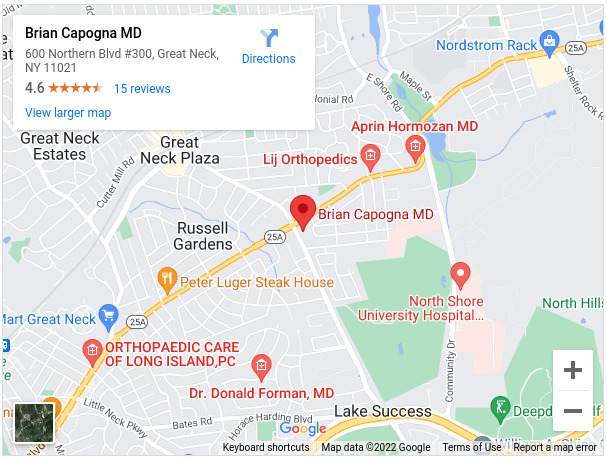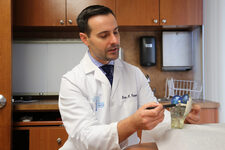Dr. Brian Capogna, M.D., leading New York orthopedic surgeon, explains what happens if a torn meniscus is not repaired. A torn meniscus is a common knee injury due to a sudden twist or turn, sudden stops and starts, or everyday activities such as running or climbing stairs. It is a common injury, but it can have serious repercussions if not attended promptly. The doctor explains the risks associated with having a chronically torn, non-functional meniscus.
The first risk is the constant pain and discomfort that can persist. The pain can intermittently worsen leading to swelling, reduced mobility, and poor quality of life. The second risk is related to joint damage. Additional damage is caused by additional tears in the meniscus tissue and ultimately the knee joint cartilage. This can lead to early arthritis in the knee than would have otherwise occurred.

Patients, especially athletes, will also experience a reduction in their ability to perform ‘higher level’ activities such as cutting, pivoting, running, and jumping. Sports enthusiasts may find they are unable to return to pre-injury levels of performance. As mentioned earlier, patients will also develop the risk of arthritis which is a degenerative condition. Dr. Capogna suggests an evaluation with an Orthopaedic Surgeon specializing in sports medicine if you suspect a meniscus tear in your knee.
A torn meniscus recovery can vary from person to person. The time taken to recover also depends on the severity of the tear and which surgical option is pursued (repair or removal). With meniscectomy (removal) it can take 8 weeks for a complete recovery with physical therapy. Doctors usually prescribe anti-inflammatory drugs to manage pain and reduce swelling. A cortisone injection is also given to accelerate the recovery process in patients who decide to treat their meniscus tears non-surgically.
The meniscus acts as a cushion between the femur (thigh bone) and the tibia (lower leg bone). When the meniscus is torn, it becomes less capable of reacting to shock during movement and impact causing added stress to the knee cartilage. Dr. Capogna has treated patients with a torn meniscus and several other conditions here in New York. Anyone experiencing this knee pain can request an immediate appointment by calling 516-627-8717 or by completing an online form.
To learn more visit https://briancapognamd.com/what-happens-if-you-dont-repair-a-torn-meniscus/
About Dr. Brian Capogna, MD Orthopaedic Surgery
Brian Capogna, MD specializes in shoulder, elbow, hip, and knee injuries. Dr. Capogna performs advanced arthroscopic surgery on the knee including meniscus repair, ACL repair and reconstruction, PCL/MCL/LCL reconstruction, and medial patella ligament reconstruction for dislocations.
###
Contact
Dr. Brian Capogna
Locations: 600 Northern Blvd. Suite 300 Great Neck NY 11021
532 New York Ave, Huntington, NY 11743
For Appointments: 516-627-8717
Website: https://briancapognamd.com

newsroom: news.38digitalmarket.com







